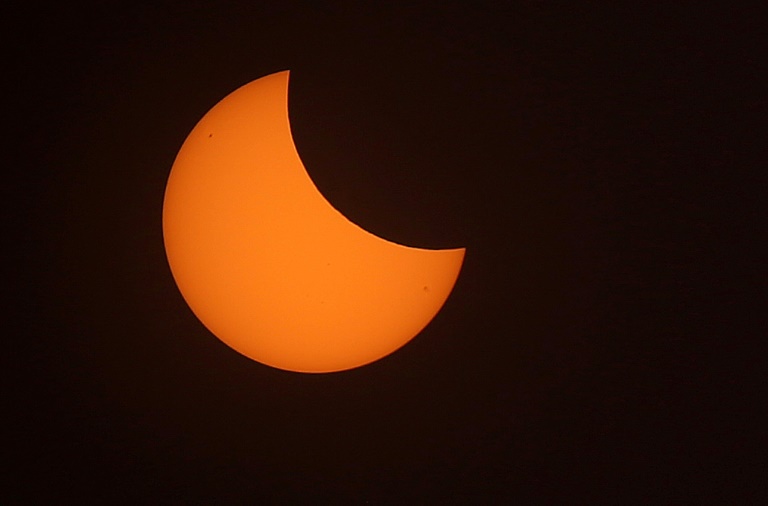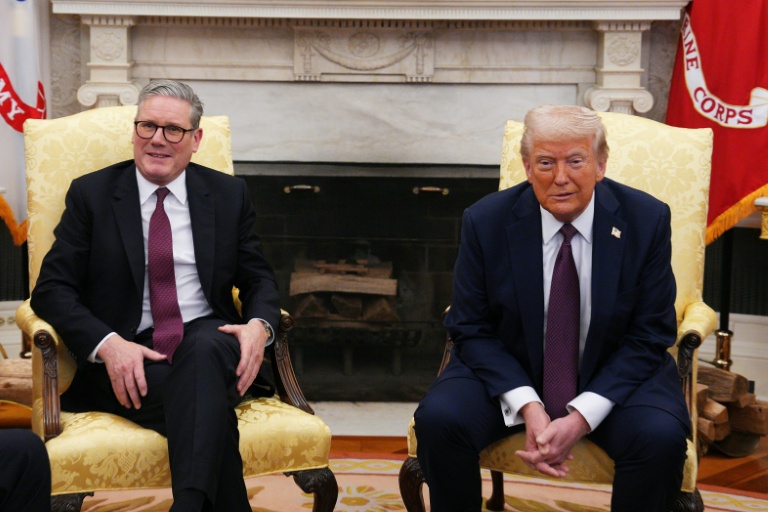(AFP) – The United States unveiled new export rules Monday on chips used for artificial intelligence, furthering efforts to make it tough for China and other rivals to access the advanced technology in Joe Biden’s final days as president. The announcement of the restrictions drew a fiery pushback from Beijing and prompted US chip industry criticism, while the European Union expressed its “concern” over the approach.
In recent years, Washington has expanded its efforts to curb exports of state-of-the-art chips to China, which can be used in AI and weapons systems, as Beijing’s tech advancements spark concern among US policymakers. “The US leads the world in AI now — both AI development and AI chip design — and it’s critical that we keep it that way,” Commerce Secretary Gina Raimondo told reporters. The new rules update controls on chips, requiring authorizations for exports, re-exports and in-country transfers, while also including a series of exceptions for countries considered friendly to the United States. If a country is not exempted — and most are not — they will face a cap on imports of advanced chips. AI data centers meanwhile will need to comply with enhanced security parameters to be able to import chips. The restrictions also tighten rules around the sharing of cutting-edge AI models.
China’s Commerce Ministry called the new policy “a flagrant violation” of international trade rules, vowing that Beijing would “firmly safeguard” its interests. The European Union meanwhile expressed concern about US measures and stressed that Europe did not represent a “security risk.”
The latest move drew industry criticism and warnings that it would hurt US competitiveness. Semiconductor Industry Association chief executive John Neuffer said: “We’re deeply disappointed that a policy shift of this magnitude and impact is being rushed out the door days before a presidential transition and without any meaningful input from industry.” He added in a statement that the rule could cause “lasting damage to America’s economy and global competitiveness” by ceding key markets to rivals. Chip titan Nvidia said in a blog post that “while cloaked in the guise of an ‘anti-China’ measure, these rules would do nothing to enhance US security.” In a white paper released Monday, OpenAI said the federal government should help the AI industry grow, adding that “responsibly exporting” cutting-edge models to allies and partners will help them stand up their own AI ecosystems.
The rules make it “hard for our strategic competitors to use smuggling and remote access to evade our export control,” White House National Security Advisor Jake Sullivan said. They also create “incentives for our friends and partners around the world to use trusted vendors for advanced AI,” he added. The new rules will take effect in 120 days, Raimondo said, giving President-elect Trump’s incoming administration time to potentially make changes. Freezing the rule, however, could risk allowing China to stockpile US hardware, a senior US official told reporters.
The Computer & Communications Industry Association cautioned that the rule will hamper the ability of US firms to deploy advanced semiconductors in data centers abroad. In its post, Nvidia stressed that the first Trump term showed how the United States “wins through innovation, competition and by sharing our technologies with the world — not by retreating behind a wall of government overreach.” Trump put heavy tariffs on China during his first presidential term. But his backers in Silicon Valley could also see the rules as an undue burden on their ability to export products. On Monday, Nvidia shares lost around two percent. The Information Technology and Innovation Foundation (ITIF) said that pressuring countries to choose between Washington and Beijing could alienate partners and boost China’s position in global AI. “Many countries may opt for the side offering them uninterrupted access to the AI technologies vital for their economic growth and digital futures,” said ITIF vice president Daniel Castro.
– Beiyi SEOW, with Julie JAMMOT in San Francisco
© 2024 AFP




